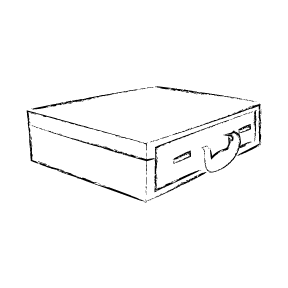Fighting against Wage & Hour Retaliation
As with many other statutes, the Fair Labor Standards Act provides protections to employees that are trying to enforce their rights. If an employer fires or disciplines an employee for raising FLSA concerns or filing an overtime/minimum wage lawsuit, the employer can be subject to much greater liability than merely paying for the lost wages. And the FLSA in particular has somewhat stronger protections than most anti-retaliation statutes.
Informal
and internal complaints are protected.
[A]n informal, internal complaint may constitute protected activity.
Hagan v. Echostar Satellite, LLC, 529 F. 3d 617, 625-27 (5th Cir. 2008).Kasten v. Saint-Gobain Performance Plastics Corp., 131 S. Ct. 1325 (2011) This includes calling HR, or simply telling your supervisor. Of course, complaints to the U.S. Department of Labor or lawsuits filed in court are also protected against retalitaion.
However, the complaint must be about violations of the FLSA. It is not enough to complain that the pay is too low
in some vague, general sense. The employee must make it clear that it is minimum wage or overtime violations that are being alleged, whether by using those words or otherwise. And these allegations must be, in general, reasonable and asserted in good faith. As a practical matter, it is important to put these sorts of thing in writing.
It also includes complaints you make on behalf of someone else, other than yourself. One limitation on this, however, is important for managers and HR employees in particular to bear in mind. A complaint which you simply pass along
or which you make as part of your job duties is not protected activity.
Emotional distress and other damages are available for retaliation violations.
The remedies available for retaliation claims under Section 15(a)(3) are broader than those available for garden-variety FLSA violations. They include not only back pay for his missed wages since termination, as in any other wrongful termination case, but Congress amended the Act in 1977 to provide that any employer who violates the provisions of section 215 (a)(3) of this title shall be liable for such legal or equitable relief as may be appropriate to effectuate the purposes of section 215 (a)(3) of this title, including without limitation employment, reinstatement, promotion, and the payment of wages lost and an additional equal amount as liquidated damages.
As Judge Easterbrook put it in Travis v. Gary Comty. Mental Health Ctr., Inc., 921 F.2d 108 (7th Cir. 1990), this amendment authorizes ‘legal’ relief, a term commonly understood to include compensatory and punitive damages.
As the Fifth Circuit recently ruled, this means that employees can get emotional distress damages for wrongful termination in violation of Section 15(a)(3) of the FLSA. Pineda v. JTCH Apts., 843 F. 3d 1062 (5th Cir. 2016).
Personal, individual liability of business owners and managers
Assuming the business meets the jurisdictional limit of doing at least $500,000 per year in business, you should also be aware that the corporate form will be no shield to individual liability by the owners and operators of the company. Under the FLSA specifically, the courts have held that such persons are - individually, jointly, and severally - employers
under the Act, and subject to individual liability. Donovan v. Sabine Irrigation Co., Inc., 695 F.2d 190, 194-95 (5th Cir. 1983); Wirtz v. Ross Packaging Co., 367 F. 2d 549 (5th Cir. 1966).
Whistleblower that raise overtime and minimum wage violations have significant legal protections, and no employee should act without knowledge of them.



Pursuant to MRPC 7.4(a)(2) FREE BACKGROUND INFORMATION AVAILABLE UPON REQUEST
This site is for general information only, and creates no attorney-client relationship. Sending inquiries to the firm does not create an attorney-client relationship. By calling or emailing the firm, you are consenting to receive return calls, emails, mailings and text messages from the firm.
To get legal advice about an employment law, labor law, federal employee law, whistleblower protection, labor unions, worker cooperatives, immigration, discrimination, harassment, wrongful termination, severance, or any related question, you must first have a conflicts check by the firm. We represent exclusively workers, worker cooperatives and unions, but we still must check for potential conflicts of interest, for example, between a supervisor and employee.
First provide the firm with your name, and the name of the person you are making claims against. This allows the firm to check for such conflicts of interest. Until you receive confirmation that there is NO CONFLICT, none of the information you provide will be considered confidential. Do NOT provide any confidential information before we have asked you to do so.
Once we have confirmed there is no conflict, you may discuss your matter with staff in a little more detail, and, if requested, make an appointment. If at your appointment the firm accepts you as a client in writing, then the attorney will be able to provide you with employment law advice.
.
.
.